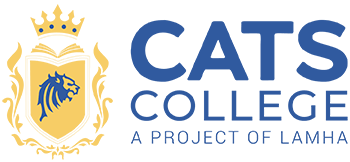At CATS College, we follow a student-centered, skill-based, and progressive teaching methodology designed to ensure academic excellence, practical learning, and holistic development of our students.
Teaching Methodology
Key factors of our Teaching Methodologies includes:
- Student-Centered Learning
- Interactive Teaching
- Real-World Application
- Modern Technology Integration
- Continuous Assessment
Knowledge Empowered
1. Classroom Teaching Framework (40-Minute Lecture)
Each lecture is structured to maximize learning and participation within a 40-minute duration:
- Revision (5 minutes): Recap of the previous lesson to strengthen retention.
- Student Questioning (5 minutes): Teacher randomly questions selected students, rating them on a scale of 1–10 in the daily evaluation sheet.
- Main Lecture (25 minutes): Delivery of the core topic using interactive methods such as multimedia, case studies, and practical examples.
- Discussion (5 minutes): Open dialogue and student participation to clarify concepts, encourage critical thinking, and reinforce learning.
Student Questioning Cycle:
- Each student is questioned at least once per week.
- Over 6 days, the teacher ensures full class coverage.
- This system allows for daily, weekly, and monthly progress monitoring.
2. Academic Assessments
To evaluate continuous academic progress, the following assessments are conducted:
- Daily Evaluation: Based on questioning and participation.
- Weekly Reports: Consolidated student performance shared with supervisors.
- Monthly Tests: Formal assessments to track comprehension and application of knowledge.
- Mid-Term Exams & Pre-Board Exams: Conducted to prepare students for final examinations.
- Final Exam Preparation Session: A dedicated test series before final board exams.
3. Parent–Teacher Meetings (PTMs)
- Held after each test session.
- Parents are briefed on their child’s academic performance, attendance, behavior, and progress.
- Joint strategies are made for improving learning outcomes where necessary.
4. Student Counseling
- Continuous academic and personal counseling is provided to students.
- Focus is on motivating them to achieve excellence and overcome academic or personal hurdles.
- Counseling is both individual and group-based to enhance overall performance.
5. Practical Learning
- Teachers conduct two practical sessions per week to ensure skill application.
- Practical tasks are assigned to students, and performance is evaluated.
- This strengthens employability skills and ensures students are workplace-ready.
6. Assignments & Projects
- Regular assignments and tasks are given to students.
- Emphasis on problem-solving, creativity, and application of classroom learning.
- Projects often involve real-world industry scenarios.
7. Industry Exposure
- Guest Lectures: Industry experts are invited to share knowledge and career guidance.
- Industry Visits: Students are taken to relevant companies and industries to observe practical operations and bridge the gap between theory and practice.
8. Co-Curricular & Extra-Curricular Activities
To ensure overall personality development, students are actively engaged in:
- Debates, quizzes, and competitions (academic & general knowledge).
- Sports tournaments for physical and mental well-being.
- Welcome & Farewell ceremonies, orientations, and cultural programs.
- Free student tours and recreational visits for exposure and confidence-building.
Conclusion
This teaching methodology at CATS College ensures continuous learning, performance monitoring, practical exposure, and holistic student development. The structured approach of lectures, regular evaluations, practicals, and co-curricular activities makes students academically strong, practically skilled, and personally confident to succeed in both education and employment.


Empowering Education
Overall Teaching Philosophy
- Blended Learning: Classroom + Practical + Digital
- Student-Centered: Interactive, Engaging Methods
- Outcome-Oriented: Focus on Employability & Skills
- Continuous Evaluation: Monthly Tests, Quizzes, Projects
- Character Building: Ethics, Communication, Teamwork Modules

